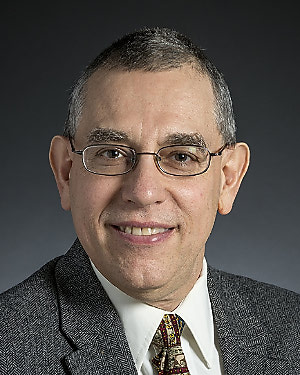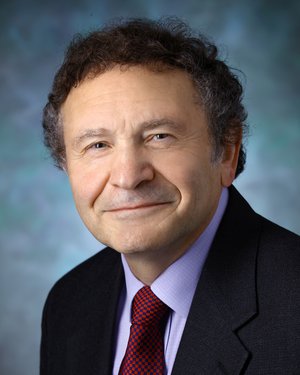Research Lab Results
-
Kathleen Gabrielson Laboratory
Research in the Kathleen Gabrielson Laboratory focuses on the signal transduction of cardiovascular toxicities in vitro, in cardiomyocyte culture and in vivo using rodent models. Specifically, the research focuses on understanding the mechanisms of various cancer therapies that induce cardiac toxicities. Currently, we are testing prevention strategies for these toxicities by studying the cardiac effects of the anthracycline doxorubicin (adriamycin) and the immunotherapeutic agent, Herceptin, anti-erbB2. We are focusing on the signal transduction pathways in the heart that are modulated by anti-erbB2 treatment, which in turn, worsens doxorubicin toxicity. Thus, understanding the mechanisms behind the combined toxicity of doxorubicin and anti-erbB2 will pave the way for the design of strategies to reduce toxicity, identify patients at risk and potentially allow higher levels of this effective combination therapy to be used with an improved long-term survival in patients.
-
Pablo Iglesias Lab
Investigators in the Pablo Iglesias Lab use analytic tools from control systems and dynamical systems to study cell biology, including biological signal transduction pathways. Our research interests include the ways cells interpret directional cues to guide their motion, regulatory mechanisms that control cell division, and the sensing and actuation that enable cells to maintain lipid homeostasis. -
Peter Abadir Lab
Research in the Peter Abadir Lab focuses on the renin-angiotensin system (RAS), a signaling pathway that regulates blood pressure and has been linked independently to both aging and inflammation. We’re particularly interested in changes in RAS that occur with aging. We also study signal transduction and the role of the crosstalk between angiotensin II receptor in aging and are interested in understanding the function of angiotensin II in the process of vascular aging.
-
Kalina Hristova Lab
The Kalina Hristova Lab investigates the structure and assembly of biological membranes. Our team conducts research on the structural and thermodynamic principles that enable membrane protein folding and signal transduction across biological membranes. Part of our work has involved developing new tools to study the structure of thermally disordered fluid membranes and the energetics of biomolecular interactions in biological membranes. Through our studies, we have established a better understanding of the physical principles behind complex biological processes and the mechanisms of disease development in humans.
-
Lee Martin Laboratory
In the Lee Martin Laboratory, we are testing the hypothesis that selective vulnerability--the phenomenon in which only certain groups of neurons degenerate in adult onset neurological disorders like amyotrophic lateral sclerosis and Alzheimer's disease--is dictated by brain regional connectivity, mitochondrial function and oxidative stress. We believe it is mediated by excitotoxic cell death resulting from abnormalities in excitatory glutamatergic signal transduction pathways, including glutamate transporters and glutamate receptors as well as their downstream intracellular signaling molecules. We are also investigating the contribution of neuronal/glial apoptosis and necrosis as cell death pathways in animal (including transgenic mice) models of acute and progressive neurodegeneration. We use a variety of anatomical and molecular neurobiological approaches, including neuronal tract-tracing techniques, immunocytochemistry, immunoblotting, antipeptide antibody production, transmission electron microscopy and DNA analysis to determine the precise regional and cellular vulnerabilities and the synaptic and molecular mechanisms that result in selective neuronal degeneration.
-
John Schroeder Lab
The John Schroeder Lab focuses on understanding the role human basophils and mast cells play in allergic reactions, as it relates not only to their secretion of potent inflammatory mediators (e.g., histamine and leukotriene C4) but also to their production of pro-inflammatory cytokines. We have long utilized human cells rather than cell lines in order to address the parameters, signal transduction and pharmacological aspects underlying clinically relevant basophil and mast cell responses. As a result, the lab has established protocols for rapidly isolating large numbers of basophils at high purity from human blood and for growing culture-derived mast cells/basophils from human progenitor cells. A variety of assays and techniques are also in place for concurrently detecting cytokines and mediators following a wide range of stimuli. These have facilitated the in vitro testing of numerous anti-allergic drugs for inhibitory activity on basophil and mast cell activation. The lab also studies counter-regulation between the IgE and innate immune receptors on human immature dendritic cell subtypes.
-
Haughey Lab: Neurodegenerative and Neuroinfectious Disease
Dr. Haughey directs a disease-oriented research program that address questions in basic neurobiology, and clinical neurology. The primary research interests of the laboratory are: 1. To identify biomarkers markers for neurodegenerative diseases including HIV-Associated Neurocognitive Disorders, Multiple Sclerosis, and Alzheimer’s disease. In these studies, blood and cerebral spinal fluid samples obtained from ongoing clinical studies are analyzed for metabolic profiles through a variety of biochemical, mass spectrometry and bioinformatic techniques. These biomarkers can then be used in the diagnosis of disease, as prognostic indicators to predict disease trajectory, or as surrogate markers to track the effectiveness of disease modifying interventions. 2. To better understand how the lipid components of neuronal, and glial membranes interact with proteins to regulate signal transduction associated with differentiation, motility, inflammatory signaling, survival, and neuronal excitability. 3. To understand how extracellular vesicles (exosomes) released from brain resident cells regulate neuronal excitability, neural network activity, and peripheral immune responses to central nervous system damage and infections. 4. To develop small molecule therapeutics that regulate lipid metabolism as a neuroprotective and restorative strategy for neurodegenerative conditions. -
Systems Biology Laboratory
The Systems Biology Lab applies methods of multiscale modeling to problems of cancer and cardiovascular disease, and examines the systems biology of angiogenesis, breast cancer and peripheral artery disease (PAD). Using coordinated computational and experimental approaches, the lab studies the mechanisms of breast cancer tumor growth and metastasis to find ways to inhibit those processes. We use bioinformatics to discover novel agents that affect angiogenesis and perform in vitro and in vivo experiments to test these predictions. In addition we study protein networks that determine processes of angiogenesis, arteriogenesis and inflammation in PAD. The lab also investigates drug repurposing for potential applications as stimulators of therapeutic angiogenesis, examines signal transduction pathways and builds 3D models of angiogenesis. The lab has discovered over a hundred novel anti-angiogenic peptides, and has undertaken in vitro and in vivo studies testing their activity under different conditions. We have investigated structure-activity relationship (SAR) doing point mutations and amino acid substitutions and constructed biomimetic peptides derived from their endogenous progenitors. They have demonstrated the efficacy of selected peptides in mouse models of breast, lung and brain cancers, and in age-related macular degeneration.
-
William G. Nelson Laboratory
Normal and neoplastic cells respond to genome integrity threats in a variety of different ways. Furthermore, the nature of these responses are critical both for cancer pathogenesis and for cancer treatment. DNA damaging agents activate several signal transduction pathways in damaged cells which trigger cell fate decisions such as proliferation, genomic repair, differentiation, and cell death. For normal cells, failure of a DNA damaging agent (i.e., a carcinogen) to activate processes culminating in DNA repair or in cell death might promote neoplastic transformation. For cancer cells, failure of a DNA damaging agent (i.e., an antineoplastic drug) to promote differentiation or cell death might undermine cancer treatment. Our laboratory has discovered the most common known somatic genome alteration in human prostatic carcinoma cells. The DNA lesion, hypermethylation of deoxycytidine nucleotides in the promoter of a carcinogen-defense enzyme gene, appears to result in inactivation of the gene and a resultant increased vulnerability of prostatic cells to carcinogens. Studies underway in the laboratory have been directed at characterizing the genomic abnormality further, and at developing methods to restore expression of epigenetically silenced genes and/or to augment expression of other carcinogen-defense enzymes in prostate cells as prostate cancer prevention strategies. Another major interest pursued in the laboratory is the role of chronic or recurrent inflammation as a cause of prostate cancer. Genetic studies of familial prostate cancer have identified defects in genes regulating host inflammatory responses to infections. A newly described prostate lesion, proliferative inflammatory atrophy (PIA), appears to be an early prostate cancer precursor. Current experimental approaches feature induction of chronic prostate inflammation in laboratory mice and rats, and monitoring the consequences on the development of PIA and prostate cancer.

